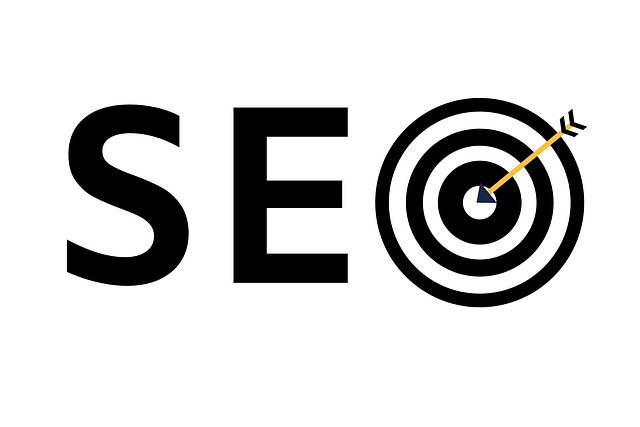In today's digital era, mastering SEO is crucial for online business success. "SEO Tips for Ranking Higher" emphasizes content optimization to boost website visibility and attract a wider audience, driving organic traffic and enhancing brand awareness. Key strategies include keyword research for understanding customer search behavior, on-page optimization for aligning webpage elements with keywords, building high-quality backlinks from authoritative sources, and prioritizing user experience through technical SEO optimizations like speed and mobile responsiveness. Creating valuable content naturally integrates relevant keywords, while measuring success through key metrics guides ongoing improvements and stays ahead of algorithm changes.
In today’s digital era, professional SEO strategies are essential for businesses aiming to rank higher and increase online visibility. This comprehensive guide dives into the core components of successful SEO, offering valuable insights on understanding search engine algorithms and their impact. From keyword research techniques to content optimization and technical considerations, these SEO tips for ranking higher equip professionals with the tools to navigate the complex landscape and enhance digital performance.
Understanding the Basics of SEO and Its Impact on Online Visibility

In today’s digital era, understanding Search Engine Optimization (SEO) is paramount for any business aiming to increase its online visibility and reach a wider audience. SEO Tips for Ranking Higher involve optimizing web content to align with search engine algorithms, ensuring your website appears prominently in relevant searches. This strategy is crucial as it drives organic traffic, enhances brand awareness, and fosters customer engagement. By implementing effective SEO techniques, businesses can navigate the vast online landscape and connect with their target market.
At its core, SEO revolves around keyword research, content creation, and technical optimization. Identifying the right keywords and incorporating them naturally into your content signals to search engines what your website is about. High-quality, relevant content not only satisfies user queries but also encourages longer visits, reducing bounce rates. Additionally, ensuring your site’s technical aspects are optimized, including mobile responsiveness and fast loading speeds, plays a significant role in improving overall user experience and search engine rankings.
Keyword Research: Unlocking the Power of Relevant Terms

Keyword research is a cornerstone of effective SEO strategies, serving as the key to unlocking higher rankings and driving organic traffic. It involves identifying relevant terms and phrases that potential customers use when searching for products or services similar to yours. By understanding user intent behind these keywords, businesses can create content that not only resonates with their target audience but also aligns perfectly with search engine algorithms.
This process goes beyond simply finding popular search terms; it entails analyzing competition, tracking trends, and delving into long-tail keywords that offer higher conversion rates. Incorporating these insights into your SEO tips for ranking higher involves optimizing content to include targeted keywords naturally, ensuring keyword density is appropriate, and building high-quality backlinks from reputable sources. This holistic approach not only enhances search visibility but also fosters a user experience that encourages longer visits and lower bounce rates.
Optimizing On-Page Elements for Search Engines

When implementing professional SEO strategies, optimizing on-page elements is a foundational step for boosting your website’s visibility and ranking higher in search engine results. This involves refining various components within your webpage to ensure they align with the keywords and phrases your target audience is searching for. Start by conducting thorough keyword research to identify high-value terms relevant to your business or niche, incorporating them naturally into your page titles, headings, meta descriptions, and content body.
Additionally, focus on enhancing user experience through structured data markup, making sure your website’s structure is intuitive and easy to navigate. Optimize images with alt tags that accurately describe their content, while also ensuring your web pages load quickly. These seemingly small adjustments can significantly impact how search engines crawl and index your site, ultimately contributing to improved SEO tips for ranking higher in the long run.
Building High-Quality Backlinks: A Strategic Approach

Building high-quality backlinks is a pivotal strategy in any SEO expert’s arsenal, serving as powerful signals to search engines that your website is an authoritative source worth recommending. Instead of focusing on quantity, adopt a strategic approach by targeting relevant, high-authority sites within your niche. This could involve guest blogging on influential blogs, creating in-depth resources that naturally attract backlinks, or collaborating with industry leaders. Remember, the goal is to earn these links organically; spamming or purchasing them can lead to penalties from search engines.
Implementing SEO tips for ranking higher should encompass a nuanced understanding of user intent and delivering exceptional content. Ensure your website provides value by addressing user queries comprehensively. This encourages visitors to link back naturally as they find your content invaluable, fostering a healthy backlink profile that reinforces your site’s credibility and search rankings.
Technical SEO Considerations for Seamless User Experience

When it comes to Technical SEO, ensuring a seamless user experience is paramount for ranking higher in search engines. Websites should be optimized for speed, with minimal loading times, as this directly impacts user satisfaction and engagement. Implementing structured data markup helps search engines understand your content better, resulting in enhanced snippet opportunities that can boost visibility. Additionally, mobile responsiveness is crucial, given the majority of searches now originate from mobile devices. A responsive design ensures your site adapts gracefully to different screen sizes, providing a consistent experience regardless of the device used.
Further SEO tips for ranking higher include optimizing URL structures for readability and relevance, ensuring proper internal linking to facilitate navigation and distribute page authority, and implementing XML sitemaps to help search engines discover all your website’s pages efficiently. Addressing these technical aspects not only enhances your site’s accessibility but also contributes to a better user experience, which are both vital components of successful SEO strategies.
Content Creation and Optimization for Better Rankings

Creating high-quality, relevant content is a cornerstone of effective SEO strategies. To rank higher on search engines, it’s crucial to understand what your target audience is searching for and deliver valuable content that meets their needs. This involves in-depth keyword research to identify terms and phrases related to your industry or niche. Once you have a solid list of keywords, integrate them naturally into your website’s content, including titles, headings, meta descriptions, and throughout the body text. However, focus on crafting engaging, informative pieces that provide real value, rather than simply stuffing keywords for the sake of optimization.
Beyond content creation, optimizing existing pages is equally vital. Regularly update old content to keep it fresh and relevant, ensuring all information is accurate and up-to-date. This can include adding new data, changing outdated visuals, or reorganizing text for better readability. Additionally, optimize technical aspects like page load speed, mobile responsiveness, and internal linking structure, as these factors directly impact user experience and search engine algorithms. Implementing these SEO tips for ranking higher will not only attract more organic traffic but also foster a positive user experience that encourages longer site visits and increases the likelihood of conversions or other desired actions.
Measuring Success: Analyzing Key SEO Metrics and Adjusting Strategies

Measuring success is an integral part of any SEO strategy, as it allows professionals to understand what’s working and where adjustments are needed. By analyzing key metrics, SEO specialists can gain valuable insights into the performance of their campaigns. Core metrics like organic traffic, keyword rankings, click-through rates (CTRs), and bounce rates provide a comprehensive view of website visibility and user engagement.
For instance, tracking keyword rankings offers SEO Tips for Ranking Higher by revealing which keywords are rising or falling in search engine results. This data can guide content strategies and on-page optimizations to target high-performing keywords. Additionally, A/B testing and regular audits ensure that strategies remain effective and adaptable, allowing professionals to stay ahead of algorithm updates and continue improving website performance.
